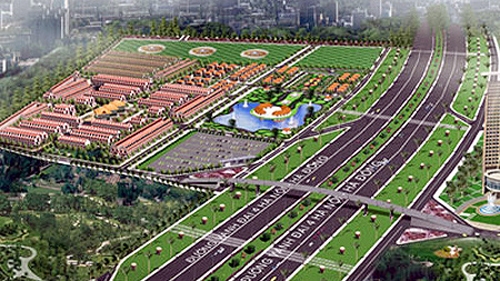Foreign contractors under the microscope
 Talking with VIR recently in Hanoi in the seminar named 'Evaluation and range Vietnamese contractors' ability," Vu Khoa, chairman of the Vietnam Construction Contractor Association, said that while most foreign contractors won the right to implement projects due to their "good track record" on the paper, they have revealed their weaknesses when working in Vietnam.
Talking with VIR recently in Hanoi in the seminar named 'Evaluation and range Vietnamese contractors' ability," Vu Khoa, chairman of the Vietnam Construction Contractor Association, said that while most foreign contractors won the right to implement projects due to their "good track record" on the paper, they have revealed their weaknesses when working in Vietnam.
"Many foreign contractors have especially won biddings in Vietnam based on their brand names, but they have not had many experiences when implementing biddings in Vietnam," Khoa said.
The standstill of real estate and infrastructure projects has occurred in major markets such as Hanoi, Ho Chi Minh City, Danang, Haiphong and Ba Ria-Vung Tau.
Several famous foreign contractors have halted work, including Korea's Keangnam, Posco, Doosan, Hanshin, GS E&C, Sungjee,; China's Gauxing, China Road & Bridge Corporation, China Guangdong Provincial Changda Highway Engineering Company, Shandong Road and Bridge Group, and many others.
Pham Sy Liem, deputy chairman of the Vietnam Construction Association, said that, despite the "track record" of foreign companies, these contractors proved ineffective in Vietnam.
The result was that while many projects have broken ground years ago, there has often been very little progress on the project site and no ones know when they could be finished.
Foreign investors have given different reasons for the delay.
Khoa said that the lack of financial resources was the first and the essential reason for the delay in all projects.
"At present, many projects' developer could not disburse capital investment to the contractors, therefore contractors could not push the projects ahead," Khoa said.
Moreover, Khoa said bidders' chosen activities were not transparent and effective.
In order to push the projects' process ahead, Khoa said related laws on biddings must be strictly followed, to clearly clarify the right of the developers, contractors and government as well.
In June, Korea's Keangnam was fined in two major northern highway projects after dropping behind the Ministry of Transport deadlines.
Slow progress is seen at the $1.25 billion Noi Bai-Lao Cai project and the $476 million Hanoi-Thai Nguyen expressway.
Meanwhile, local contractors are also falling in the same situation with foreignones because of a shortage of capital investment.
With most infrastructure projects using foreign capital sources implemented by foreign contractors, their domestic counterparts have been sidelined.
According to figures from Ministry of Construction, around 150 infrastructure projects are constructed in Vietnam each year, and most of them are carried out by contractors from Japan, South Korea and China.
Limited financial capacity, outdated equipment and low labour productivity have forced local contractors to cede ground.
Because local contractors do not have enough capital to implement such projects, they have to depend on credit sources from international organizations like the Asian Development Bank, World Bank, or Japan Bank for International Cooperation.
These loans often come with certain conditions that are hard to meet, so only foreign contractors are found eligible to win international bids.
Only a few Vietnamese contractors like Vinaconex, Song Da and Licogi have the capacity to compete with foreign rivals for Engineering Procurement Construction contracts in the domestic market.
Figures from Vietnam Federation of Civil Engineering Association show 99 per cent of the thousands of construction projects underway in Vietnam were behind schedule.
What the stars mean:
★ Poor ★ ★ Promising ★★★ Good ★★★★ Very good ★★★★★ Exceptional
Related Contents
Latest News
More News
- Hermes joins Long Thanh cargo terminal development (February 04, 2026 | 15:59)
- SCG enhances production and distribution in Vietnam (February 04, 2026 | 08:00)
- UNIVACCO strengthens Asia expansion with Vietnam facility (February 03, 2026 | 08:00)
- Cai Mep Ha Port project wins approval with $1.95bn investment (February 02, 2026 | 16:17)
- Repositioning Vietnam in Asia’s manufacturing race (February 02, 2026 | 16:00)
- Manufacturing growth remains solid in early 2026 (February 02, 2026 | 15:28)
- Navigating venture capital trends across the continent (February 02, 2026 | 14:00)
- Motivations to achieve high growth (February 02, 2026 | 11:00)
- Capacity and regulations among British areas of expertise in IFCs (February 02, 2026 | 09:09)
- Transition underway in German investment across Vietnam (February 02, 2026 | 08:00)

 Tag:
Tag:


















 Mobile Version
Mobile Version